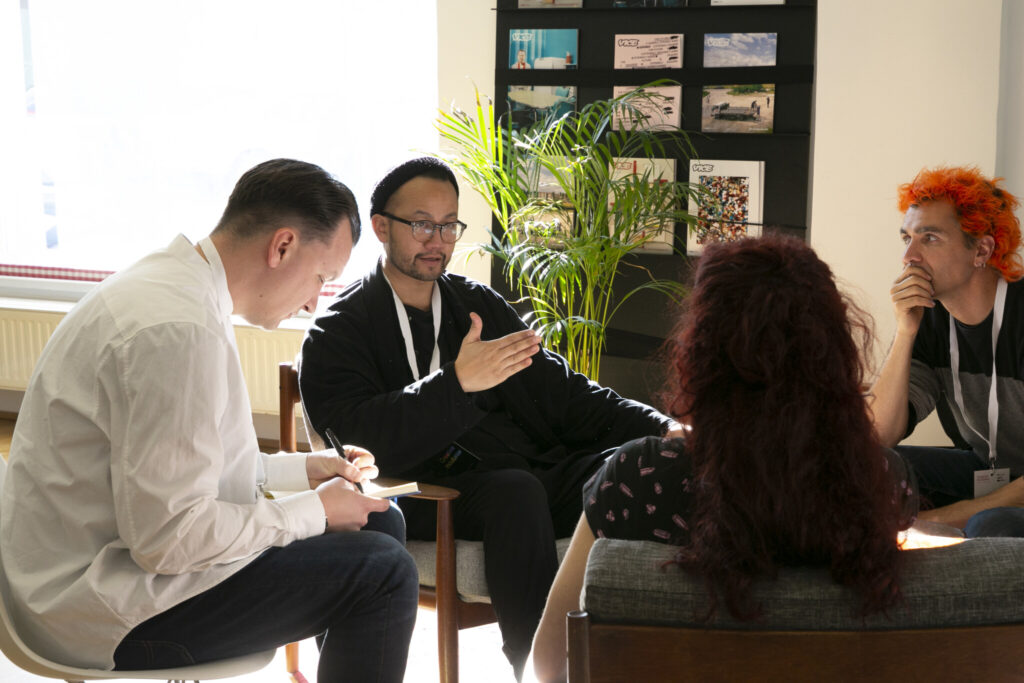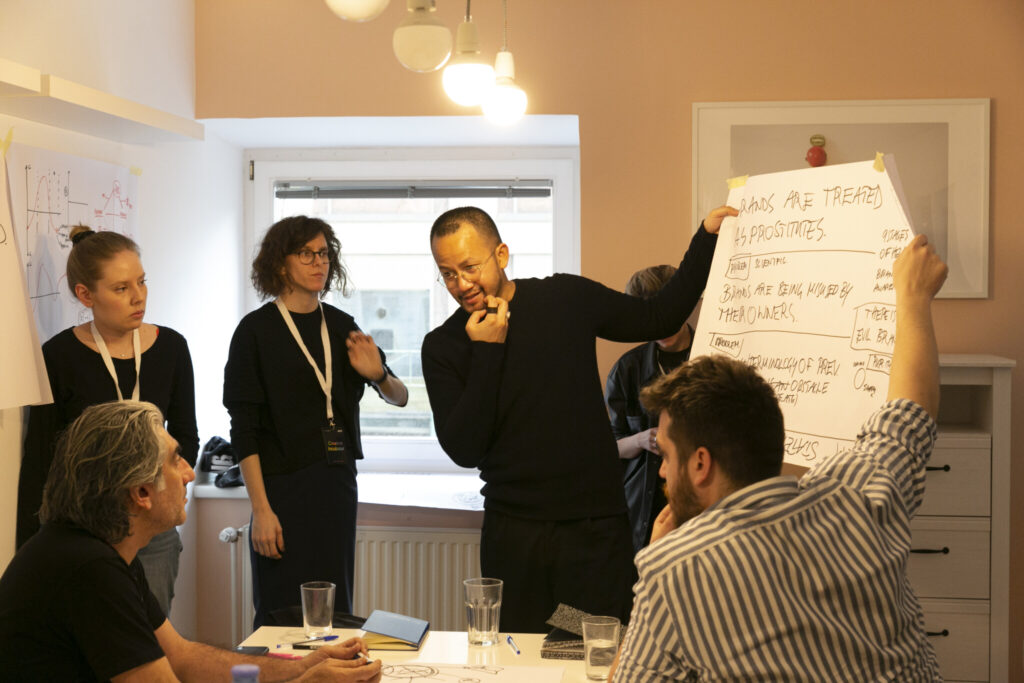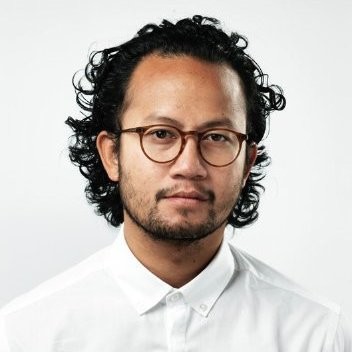Blog Post
A Creative’s Rationale
By Dian Warsosumarto:
Executive Creative Director at Vice, Austria – Participant of the Creative Incubator
As an advertising creative, it has always seemed clear to me why I am in this business – simply to create great work. And ever since, I have passionately spent endless hours to understand what the term ‘great work’ means and how to produce it by myself, in a group and as a collective. Starting as a graphic designer without any background in marketing, business, or economics, I have been able to figure out how to identify and execute an idea that contributes to a company’s success. Always in pursuit of finding that van diagram representing the perfect intersection of a truthful quirk and the briefing that was lying in front of me. And in the most rewarding cases, the result was a beautiful solution, a campaign that made everyone happy.
In contrast to that, my understanding of what ‘being a creative’ means has been quite cloudy and was stuck somewhere between the age-old debate around the importance of arts in commerce and the privilege of creating awesome things with brand money.
Which took me to another, even more profound realization: I never took the time to reach a deeper understanding of what I am actually doing other than ‘great work.’ That again made me wonder: what exactly kept me from sitting down and going through five levels of asking myself ‘Why?’ – probably not to hit rock bottom with an advanced case of existential crisis.

But maybe an existential crisis is precisely what we creative people need right now. Our kind is known for its ability to project and inject themselves into any category or culture. We are all-time ready to give surprising advice, create value, and even find a deeper meaning for our clients. Yet, I tend to struggle when it comes to finding a valid purpose for myself. My unique contribution to humanity, if you will. I am a huge believer in an autobiographical approach to whatever I do, so here’s a little bit of soul searching I did and that you might be able to relate to.
I was never meant to see the bigger picture.
Don’t get me wrong; this is not meant as a personal accusation towards any individual, but rather a provocation to raise questions unanswered. I came out of design school with a mission to create beautiful things while earning a living. The agencies I grew up at were very adept at keeping cost estimates away from the creative department, making production budgets the only relevant financial parameter in my mind for years to come. While some might say that freeing creative people from financial aspects makes room for creative thinking, it can also be seen as an ongoing culture of selective business illiteracy, separating art from money people. I believe that improving creatives’ basic understanding of an agency’s financial operations would help create a stronger collective sense, as a company and industry, to face significant challenges lying ahead.
I was okay with working in abusive agency environments.
Constant over hours, insensitive supervision, and psychological pressure. In my career, I have decided to bear with all of the above, deliberately. But these experiences have also influenced my style of leadership, affecting people around me. It took time to acknowledge my shortcomings as a leader and to change pre-programmed behaviours towards members of my team. Respecting the individuals and putting people before any delivery is something we all need to embrace and tackle in all honesty. Today’s talents are looking for a culture with high ethical standards and a real appreciation for its employees. In the recent past, advertising agencies have become more and more repellant to creative talent. Self-awareness and a conscious leadership ethos will put us back on the right track.
I hardly ever found myself morally conflicted.
Apart from the consensus that tobacco advertising is nothing anyone should work on (at least not openly), there haven’t been too many moral restrictions during my professional career. Neither in terms of selecting clients or the possible negative impact of my work on people. Will we be able to take the big tobacco stand towards other categories that are harmful to us? Or will the solution lie in a new definition of ethical standards, making you the creative partner in reducing a brand’s negative footprint on everything around it from suppliers to consumers? The current situation has proven that our work can be a powerful tool to create positive impact across all levels of society. An idea or the right message can bring agreement to where there is discord, spark a collective effort between competitors, or give hope in challenging times. Learning from this crisis and the possibilities it has created will help us to remind ourselves what communication can achieve.

Opening up my horizon to the economic, cultural, and ethical aspects of our system feels like a powerful gateway into the future. And there’s no other way than to be crazy optimistic, utopian and foolish about what advertising will become.
Eventually, we will come to the conclusion that our place that currently feels somewhat broken, is the perfect place to start fixing the world.
-

Dian Warsosumarto
Executive Creative Director at Vice, Austria